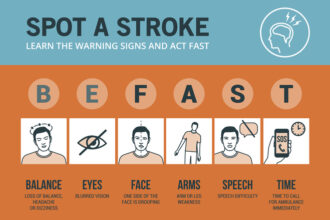Dr Casey Breen, a Senior Postdoctoral Research Fellow at Oxford University’s Leverhulme Centre for Demographic Science and Department of Sociology, led a study recently published in Demography. This research investigated the correlation between homeownership and life expectancy in the United States, focusing on male Americans born in the early twentieth century. The findings indicated that homeownership contributed an additional 0.36 years to the life expectancy of Black males and 0.42 years for their White counterparts.
Dr. Breen remarked on the significance of these findings, noting, “My study demonstrates that homeownership significantly boosts life expectancy. These outcomes support the implementation of social policies aimed at broadening homeownership among Black Americans, which could potentially reduce the life expectancy disparities between Black and White males in the US.”
The research underscores the severe racial inequalities in mortality rates that persist in the US and points out the stark differences in homeownership rates between racial groups during the twentieth century. For example, during the 1940s, White Americans were nearly twice as likely to own a home as Black Americans. This disparity can be attributed to systemic historical challenges such as slavery and racial discrimination, which significantly hindered Black Americans’ ability to purchase homes. In 1940, fewer than 10% of Black Americans between 18 and 25 owned homes, and only 40% of those over 65 were homeowners.
To conduct this analysis, Dr. Breen utilised data from the 1920 and 1940 census records linked to social security mortality records. By employing a sibling-based identification strategy, the study effectively assessed the impact of homeownership on life expectancy among American males who owned homes between the ages of 24 and 35.
The research also explored other reasons homeownership might lead to longer life expectancies. Owning a home not only aids in wealth accumulation—often associated with better health outcomes—but also provides psychological benefits and fosters a sense of community, which are vital for well-being. Interestingly, the study noted that the property’s value had minimal influence on life expectancy, suggesting that the benefits of homeownership extend beyond financial aspects.
Furthermore, Dr. Breen highlighted another key finding: “There is a notable, statistically significant difference in life expectancy between Americans who own their homes and those who rent. Homeowners in early adulthood tend to live about six months longer at age 65 than those who rent.”
The study meticulously controlled factors such as educational attainment, race, income, marital status, and family background to understand better how homeownership impacted life expectancy in the US during the twentieth century. However, it is crucial to acknowledge that the study’s focus on specific demographics—gender, ethnicity, nationality, and historical context—means its findings may not be generalisable to other populations.
More information: Casey F. Breen et al, The Longevity Benefits of Homeownership: Evidence From Early Twentieth-Century U.S. Male Birth Cohorts, Demography. DOI: 10.1215/00703370-11680975
Journal information: Demography Provided by University of Oxford








